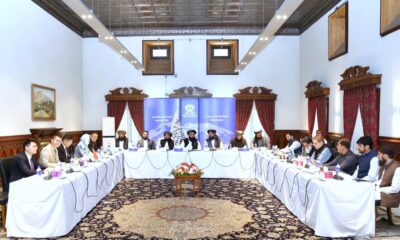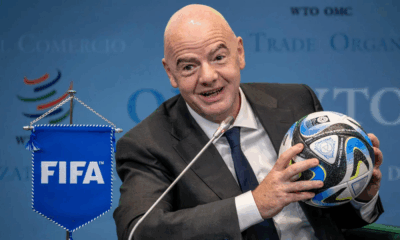Latest News
IEA hoping to attend next BRICS meeting
The ministry has asked Moscow to allow the economic deputy prime minister of the Islamic Emirate, Mullah Abdul Ghani Baradar, to attend the summit
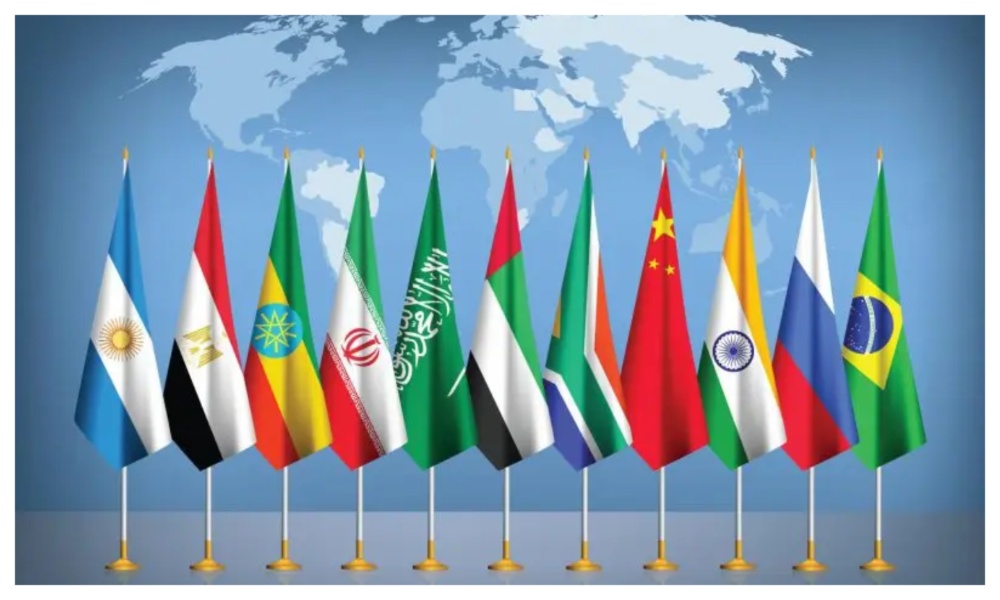
Afghanistan’s ministry of foreign affairs has formally asked to attend the BRICS summit in Kazan next month.
In a written request, the ministry asked Moscow to allow the economic deputy prime minister of the Islamic Emirate, Mullah Abdul Ghani Baradar, to attend the summit.
In 2001, the Goldman Sachs Investment Institute proposed a new alliance to forecast future economic trends.
At its 61st session of the UN General Assembly, in 2006, the foreign ministers of Brazil, Russia, India and China started preliminary talks.
They called themselves BRIC and their first meeting was held on June 16, 2009 in Yekaterinburg, Russia.
When South Africa joined in 2010, the name of the alliance was changed to BRICS.
BRICS was designed to bring together the world’s most important developing countries to challenge the political and economic power of the wealthier countries of North America and Western Europe.
This coalition has seen significant expansion in recent years and now includes Iran, Egypt, Ethiopia and the United Arab Emirates.
Before this, BRICS leaders (Brazil, Russia, India, China and South Africa) announced that Afghanistan should not threaten countries or become a training center for terrorists. Türkiye has also announced its readiness to join this economic alliance.
Latest News
Baradar meets Mes Aynak project director, urges quick construction start

Deputy Prime Minister for Economic Affairs, Mullah Abdul Ghani Baradar, on Saturday in Kabul met with Wang Zhicheng, the Director General of the contracting company for the Mes Aynak copper mine in Logar province.
During the meeting, Baradar described Mes Aynak as one of Afghanistan’s key economic projects and emphasized that the Islamic Emirate has provided all necessary facilities to support the contracting company in advancing the project, according to a statement from his office.
Baradar urged the company to begin the construction phase of the project as soon as possible and to address any issues causing delays.
Wang Zhicheng, Director General of MCC, praised the cooperation of the Islamic Emirate in furthering the project.
He mentioned that significant progress has been made in several aspects of the Mes Aynak project and expressed readiness to proceed with the next steps in coordination with the Ministry of Mines and Petroleum.
The Aynak copper mine contains millions of tons of copper and is believed to have the second-largest copper reserve in the world.
The contract for the Aynak copper mine was signed in 1999 with the Chinese company MCC for 30 years, but due to security issues and prolonged excavations of ancient relics in the area, the extraction of copper was delayed.
Latest News
Afghanistan, Pakistan and China agree to hold sixth round of FMs’ talks in Kabul
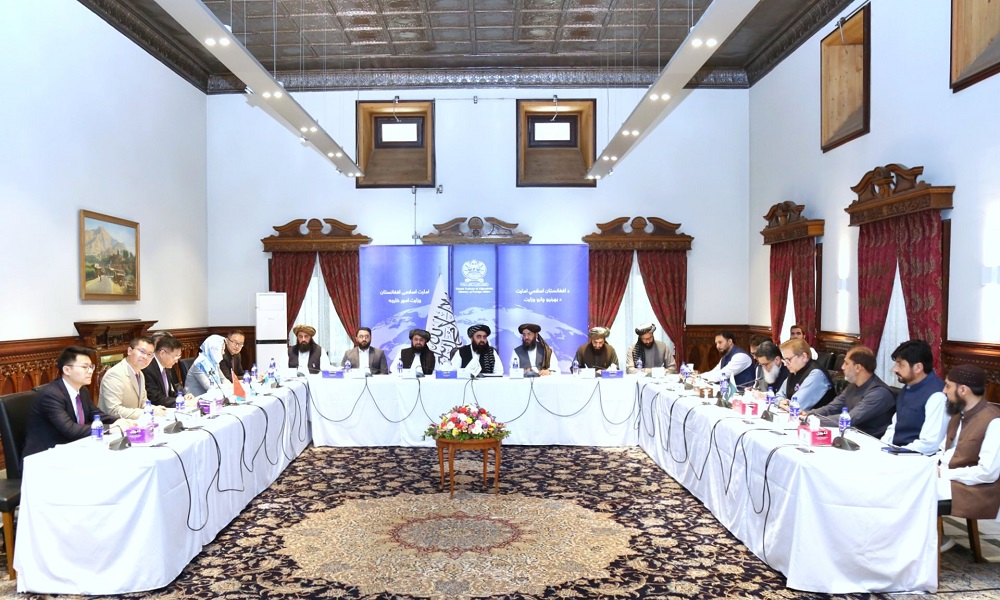
The special representatives of Pakistan and China for Afghanistan, along with Amir Khan Muttaqi, the acting foreign minister of Afghanistan, agreed in a trilateral meeting held on Saturday that the sixth round of foreign ministers’ talks among the three countries will be held in Kabul.
Zia Ahmad Takal, Head of Public Relations at the Ministry of Foreign Affairs, said in a statement that Muttaqi, Yue Xiaoyong, and Mohammad Sadiq also agreed to begin preparations for the upcoming meeting of the foreign ministers of Kabul, Islamabad, and Beijing.
Today’s trilateral meeting addressed follow-up issues related to the fifth round of foreign ministers’ dialogue among Afghanistan, China, and Pakistan, as well as discussions on political and economic cooperation among the three countries.
During this meeting, Muttaqi emphasized the importance of political and economic relations between Afghanistan and the two countries and expressed hope for “significant progress” in these areas in the future.
The special envoys from China and Pakistan reaffirmed their commitment to strengthening relations with Afghanistan based on good neighborliness and mutual respect.
Pakistan’s envoy Sadiq also said in a post on X page that today’s trilateral meeting provided an opportunity to align views on economic and security cooperation, as well as regional stability.
Latest News
Pakistan says India launched attack on Afghanistan, India denies
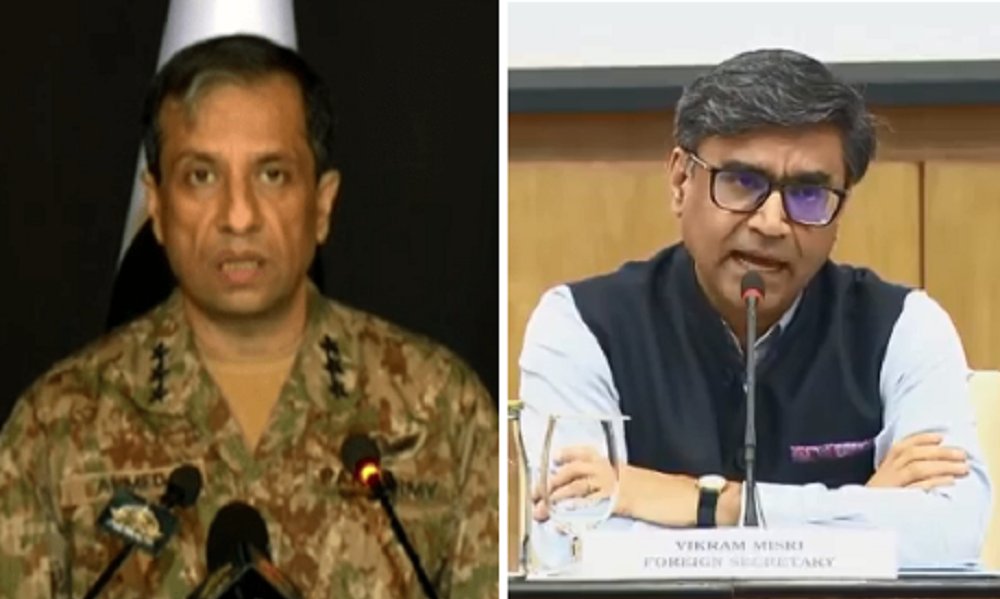
The Pakistani military has claimed that India launched missile and drone attack on Afghanistan.
Pakistan Army spokesman Ahmad Sharif Chaudhry made the claim at a news conference, calling Afghanistan a “brotherly” country.
India, however, has rejected the claim as “ludicrous.”
“I only want to point out that the Afghan people don’t need to be reminded about which country it is that has, on multiple occasions in just the last one and a half years, targeted civilian populations and civilian infrastructure in Afghanistan” said Indian Foreign Secretary Vikram Misri.
-

 Regional5 days ago
Regional5 days agoIran’s foreign minister urges restraint in India, Pakistan standoff
-

 Latest News4 days ago
Latest News4 days agoCabinet Meeting convened to discuss Afghanistan’s population census plan
-

 International Sports5 days ago
International Sports5 days agoIPL 2025: Seven teams fighting for four spots
-
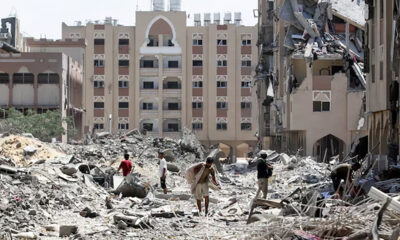
 World5 days ago
World5 days agoIsrael may seize all Gaza in expanded operation, officials say
-

 Regional4 days ago
Regional4 days agoAt least 26 civilians killed in Indian strikes on Pakistan: Islamabad
-
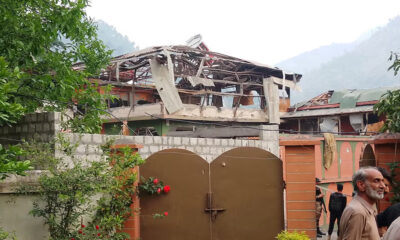
 Regional4 days ago
Regional4 days agoIndia strikes Pakistan over Kashmir tourist killings
-

 Science & Technology4 days ago
Science & Technology4 days agoSkype ends operations after 22 years of service
-

 Latest News3 days ago
Latest News3 days agoIslamic Emirate of Afghanistan ‘concerned’ over rising tensions between Pakistan and India








